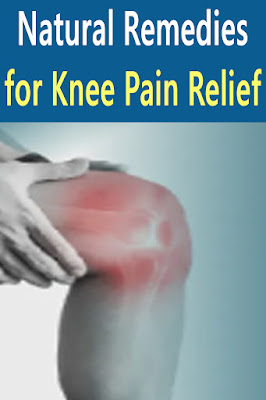Natural Remedies for Knee Pain Relief
Knee pain is a common complaint that affects people of all ages. Whether it's due to an injury, arthritis, or simply wear and tear over time, knee pain can significantly impact your quality of life. While over-the-counter medications can help, many people seek natural remedies for knee pain relief. Here are some effective natural methods to alleviate knee pain and improve joint health.
1. Turmeric
Why It Works:
- Turmeric contains curcumin, a powerful anti-inflammatory compound that can help reduce pain and swelling in the knee.
How to Use:
- Add turmeric to your diet by incorporating it into soups, stews, and curries.
- Consider taking a turmeric supplement, but consult with a healthcare provider first.
2. Ginger
Why It Works:
- Ginger has anti-inflammatory properties similar to those of turmeric, making it effective in reducing knee pain and swelling.
How to Use:
- Drink ginger tea by boiling fresh ginger slices in water.
- Add ginger to your meals or take ginger supplements.
3. Epsom Salt Soak
Why It Works:
- Epsom salt contains magnesium sulfate, which can help reduce inflammation and relieve pain.
How to Use:
- Add two cups of Epsom salt to a warm bath and soak your knees for 15-20 minutes.
- Alternatively, create a compress by dissolving Epsom salt in warm water and applying it to the knee with a cloth.
4. Apple Cider Vinegar
Why It Works:
- Apple cider vinegar has alkalizing properties that can help reduce pain and improve mobility.
How to Use:
- Mix two tablespoons of apple cider vinegar in a glass of water and drink daily.
- Apply apple cider vinegar topically by mixing it with olive oil and massaging it into the knee.
5. Essential Oils
Why They Work:
- Essential oils like eucalyptus, peppermint, and lavender have analgesic and anti-inflammatory properties.
How to Use:
- Mix a few drops of essential oil with a carrier oil (such as coconut or olive oil) and massage it into the knee.
- Add a few drops of essential oil to a warm bath.
6. Cold and Heat Therapy
Why It Works:
- Cold therapy reduces swelling and numbs sharp pain, while heat therapy relaxes muscles and improves blood flow.
How to Use:
- Apply an ice pack to the knee for 15-20 minutes several times a day.
- Use a heating pad or warm towel on the knee for 15-20 minutes to reduce stiffness.
7. Omega-3 Fatty Acids
Why They Work:
- Omega-3 fatty acids, found in fish oil, flaxseeds, and walnuts, have anti-inflammatory effects that can help reduce knee pain.
How to Use:
- Incorporate more omega-3-rich foods into your diet.
- Take an omega-3 supplement, but consult with a healthcare provider first.
8. Exercise and Physical Therapy
Why It Works:
- Regular exercise and physical therapy can strengthen the muscles around the knee, improve flexibility, and reduce pain.
How to Use:
- Engage in low-impact exercises such as swimming, cycling, or walking.
- Consult a physical therapist for a personalized exercise program.
9. Weight Management
Why It Works:
- Excess weight puts additional stress on the knees, exacerbating pain and inflammation.
How to Use:
- Maintain a healthy diet and exercise regularly to achieve and maintain a healthy weight.
10. Acupuncture
Why It Works:
- Acupuncture can help reduce knee pain by stimulating specific points on the body to release natural pain-relieving chemicals.
How to Use:
- Consult a licensed acupuncturist for treatment.
Conclusion
Natural remedies can be an effective way to manage knee pain and improve joint health. Incorporating these remedies into your daily routine can help alleviate pain and enhance mobility. However, it's important to consult with a healthcare provider before starting any new treatment, especially if you have underlying health conditions or are taking other medications. By combining natural remedies with a healthy lifestyle, you can achieve long-term relief from knee pain.
